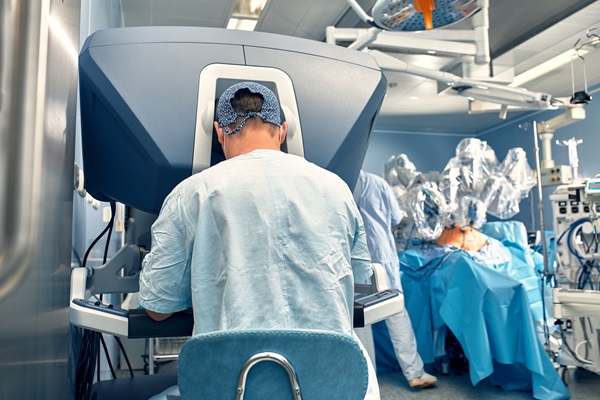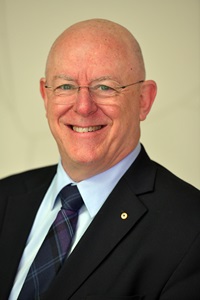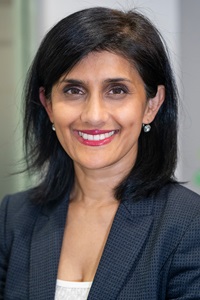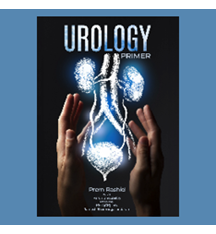2024 | Volume 25 | Issue 6

Artificial intelligence (AI) is poised to revolutionise the field of surgery. From enhancing surgical precision to streamlining pre- and post-operative care, AI presents unprecedented opportunities for improving patient outcomes and advancing medical education. However, it also raises important questions about regulation, safety, accountability, and the role of human judgment in healthcare. A balanced approach combining innovation with ethical safeguards is essential for the future of healthcare.
The Royal Australasian College of Surgeons (RACS) is calling for the establishment of a comprehensive regulatory framework to guide the safe and responsible use of AI in healthcare.
As AI technology rapidly evolves, it presents significant opportunities to enhance patient outcomes, support surgical education, and optimise surgical care.
In a submission to the Australian Department of Health and Aged Care on the use of AI in surgery, RACS highlighted the need to address regulatory challenges, accountability for errors, and potential misinterpretations that could lead to incorrect clinical decisions.

Prof Mark Frydenberg
RACS Health Policy and Advocacy Committee Chair, Professor Mark Frydenberg, says the benefits of AI should not come at the expense of patient safety and surgeon accountability.
"The surgical sector has experienced remarkable technological advancements in recent years," says Professor Frydenberg.
“It is crucial that we implement a regulatory framework that prioritises clinical outcomes and mitigates risks.
“Ultimately, the responsibility for patient care lies with the surgeon, and issues related to consent, privacy, and data security must be effectively managed."
Predicting the use of AI in the next decade
The use of AI in healthcare is not new, but its rapid evolution suggests it will play an increasing role in clinical care, training, research and surgery in the next five to 10 years.

A/Prof Payal Mukherjee
Sydney Otolaryngology Head & Neck surgeon, Associate Professor Payal Mukherjee says it is difficult to predict the extent of the technology’s influence and capability in the coming decade.
“AI will increasingly be integrated into software and serve as devices themselves or be integrated into other devices,” Associate Professor Mukherjee says.
“In surgery AI is likely to be integrated into electronic medical records, play a role as clinician assist tools, and assist in image guidance, as well as in surgical education.
“The area of humanoid AI is rapidly evolving and it is possible that these AI integrated robots may play some role in the operating room such as a surgical assistant or in education.”
The importance of clinical judgement in high-risk cases
Surgeons agree that AI technology could be a valuable support to surgeons as they make clinical judgements.
An article in the Medical Journal of Australia titled, Artificial intelligence for surgical services in Australia and New Zealand: opportunities, challenges and recommendations, stated: AI has numerous limitations and should always serve as an adjunct that benefits outcomes, rather than replacement of the staff within surgical systems.
Associate Professor Mukherjee says it is crucial surgeons continue to use their own judgement when working with AI to mitigate against the risk of ‘artificial hallucination’.
“The concept of artificial hallucination is a term that refers to potential misinformation that maybe relayed in an authoritative tone.
“This introduces the issue of automation bias and we are more likely to believe that the machine is right over our own clinical judgement. This may increase the risk of unnecessary investigations to cover possibilities mentioned by the AI.”
“Therefore, we need to approach AI like anything else—in an evidence based manner and for applications where the evidence supports its use.”
Patient communication and consent
Research into perceptions of AI in the Australian community is limited, and no data is available on public opinion on its use in surgery.
However, an insight into Australians’ views on AI in health care was provided in the The Adoption of Artificial Intelligence in Health Care and Social Services in Australia: Findings From a Methodologically Innovative National Survey of Values and Attitudes (the AVA-AI) study.
While an estimated 60 per cent of Australians support the development of AI in general, in specific health care scenarios this diminishes to between 27 and 43 per cent.
Accuracy was rated as the most important aspect of the introduction of AI, while reducing costs was considered the least important.
Associate Professor Mukherjee says surgeons need to maintain trust with patients and gain fully informed consent to the use of AI.
“One of the core values in health care is trust of patients. Without transparency and acceptance by patients, AI as a tool carries the risk of breaching trust.
“If surgeons intend to use AI based products, it is important that they are transparent about the issues that will be relevant to their care. This includes privacy, how much the AI has influenced the diagnosis, and how much it will be incorporated in their surgery.”
Adelaide Medical School Head of Surgery Discipline, Professor Guy Maddern believes that, rather than being wary of AI, patients will embrace the technology.
“My concern is that patients will clamour for it without really understanding it, and it will become a marketing tool.
“What we have to do is explain how we're using it, and if we do that, I can't imagine a single patient saying to me, ‘Don't get further assistance when you're doing my procedure’.”
Potential for AI to replace surgeons
While AI is routinely used to assist in diagnostic software, surgeons will continue to play a crucial role in interpreting clinical history, examining and operating.
“It is unlikely that AI will replace the role of a surgeon, but it is much more likely that surgeons who use AI will replace surgeons who do not,” Associate Professor Mukherjee says.
The AVA-AI study confirms that AI is unlikely to replace humans in health care with four in five Australians valuing continued human contact and discretion in service provision more than any speed, accuracy or convenience AI systems might provide.

Prof Guy Maddern
Professor Maddern says that rather than replacing them, AI had the potential to improve a surgeon’s performance.
“We still need our hands; we still need to talk to patients; we still need to conduct procedures. It just makes the surgeon better.”
However, Professor Maddern says there is a risk of AI compromising the skills development of surgeons and other healthcare workers, referring to the use of AI to interpret mammograms.
“We are yet to have AI programs that are as good as an experienced radiologist, but if we start relying on these, it means our less experienced radiologists will never build up the experience or they won’t want to take the legal risk of making their own decisions.
“I believe that if we become too reliant on this technology, young surgeons, generally speaking, will defer to AI guidance rather than develop their own abilities and that is not in anyone’s best interests,” he says.
Using AI to streamline pre- and post-operative processes
In the not-too-distant future, AI could be used to bring data together to ensure a smoother pre- and post-operative process.
Currently, both rely on the communication of many different pieces of information between healthcare staff, hospitals and patients.
Professor Maddern says AI could help collate this information and ensure it is delivered in a timely way, potentially identifying problems more reliably than an individual healthcare worker.
“Every day there will be a patient coming into a major public hospital in Australia who didn't stop their anticoagulation medication before the procedure and we will cancel that patient and reschedule them next week,” he says.
“That is incredibly disruptive to the patient, it's incredibly wasteful of resources, and potentially delays a procedure that needs to be done more urgently.
“If you’re using AI, you would be able to feed in all the requirements, have a conversation with the patient about the things they need to do, and the AI will pick up anything you didn't tell them.
“It's an arrangement that hopefully is not based on staff changes, bits of paper or software dropping out.”
Despite the challenges and the safeguards that are needed, Professor Maddern is optimistic about the ways that AI will support surgeons in the coming decade, with its access to vast amounts of data and ideally, lack of bias or prejudice.
“It's clearly going to make a big difference and you would be very unwise in the future, for anything than a perfectly obvious problem, not to consider using it.”

